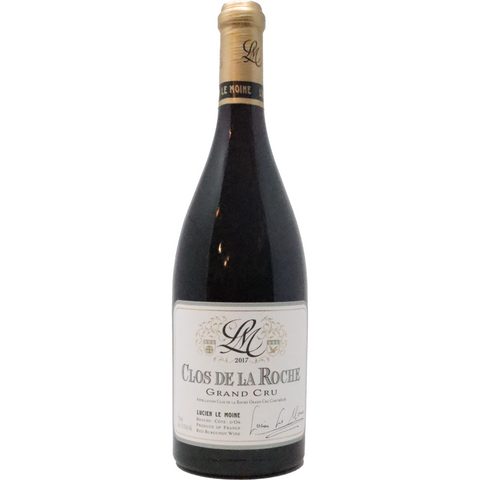
2017 Lucien Le Moine Clos de la Roche Grand Cru, Burgundy, France
Gently revealing seductive notes of red and dark currant aromas layered with spice and earth. A plethora of structure and concentration that lead to the bigger, richer and more powerful flavors. Patience will definitely be pay dividends.
ABOUT THIS WINE
Often there is but a single cask of each wine – their 100 barrels of 2007 cover 68 different wines.
There are no contracts with growers, though they will frequently return to the same sources, and no specific requirements as to how the grapes should have been grown or the wines made. Indeed it was very interesting to taste a line-up of Vosne-Romanée wines and see some which had evidently been vinified with stems and others not.
According to Rotem, her husband’s strength is that he can sniff out the quality and style of a vintage at a very early stage. They work closely with their barrel supplier, Stéphane Chassin, to ensure the right barrels for the style of a given wine, using wood from the Jupilles forest which is apparently the slowest growing in France, thus giving the most fine-grained wood. One hundred per cent new wood is used.
The general recipe, although of course each vintage and if need be each wine may require its own treatment, is to ensure late malolactic fermentations, to stir up the plentiful lees for both red and white wines, to rely more on CO2 than SO2 to preserve the wine from oxidation and to maintain the wines unracked in new barrels until the final preparation before bottling.
ABOUT THIS PRODUCER
In two decades of work, Lucien Le Moine has become one of the most talked about Burgundy producers, making some of the most sought after wines from the region. The approach is extreme – two people, together doing everything by hand, working with a dazzling array of Burgundy’s great terroirs. In the late 1980s, Mounir Saouma’s visit to a Trappist monastery in the Middle East led to a prolonged stay during which he worked in the monastery vineyards and first learned to make wine. He subsequently studied Viticulture and Oenology in Montpellier, followed by six years working in Burgundy, other areas of France, and California. During this time he became fascinated by traditional methods of viticulture, vinification, and aging. In 1999 he decided to push to the extreme all he had seen and experienced, and with his wife Rotem created a small cellar dedicated to the philosophy of making wines of purity and typicity.
Details:
| Grape(s) | Pinot Noir |
| Farming | Sustainable |
